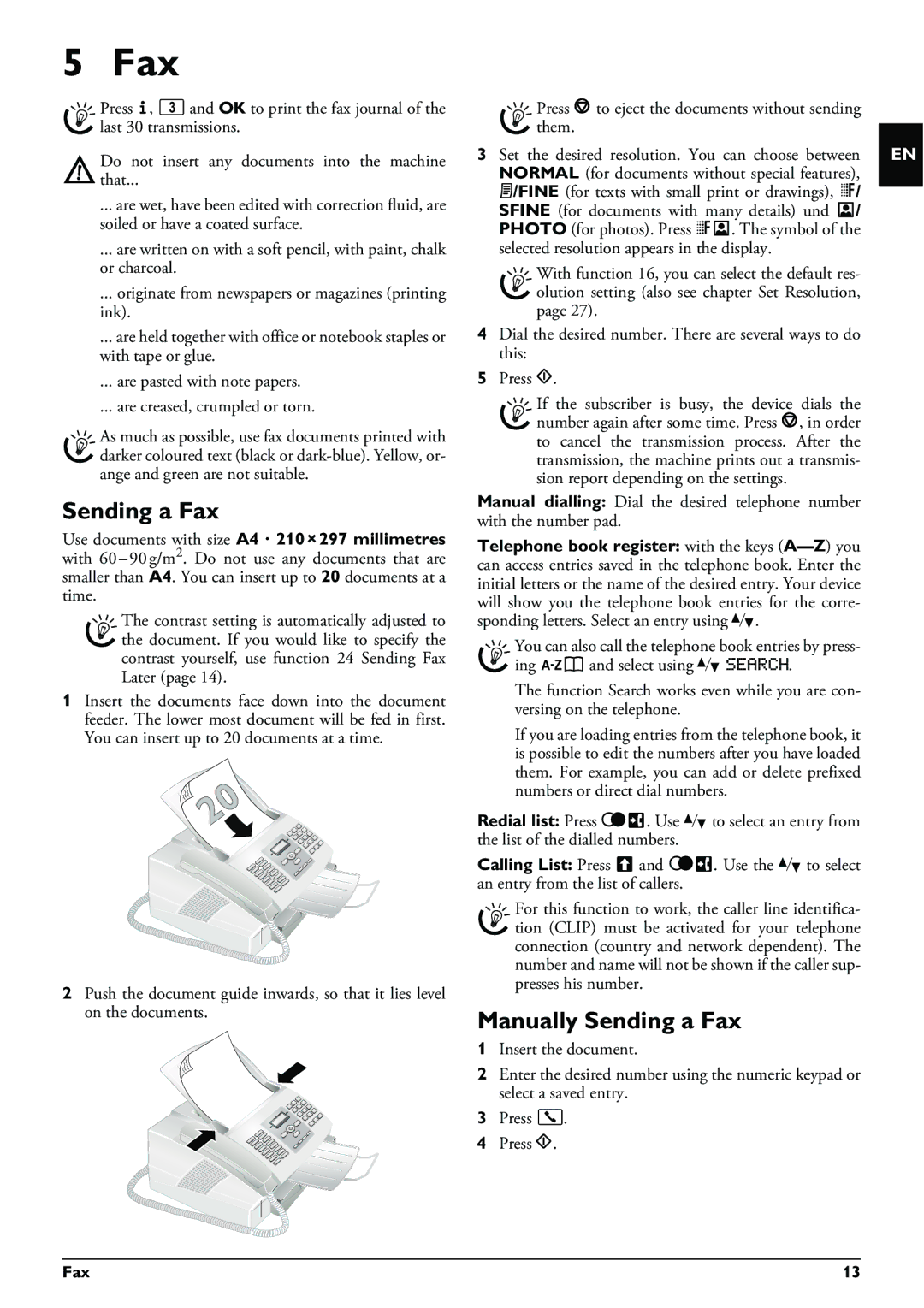
5 Fax
Press ¨, 3 and OK to print the fax journal of the last 30 transmissions.
Do not insert any documents into the machine
that...
... are wet, have been edited with correction fluid, are soiled or have a coated surface.
... are written on with a soft pencil, with paint, chalk or charcoal.
... originate from newspapers or magazines (printing ink).
... are held together with office or notebook staples or with tape or glue.
... are pasted with note papers.
... are creased, crumpled or torn.
As much as possible, use fax documents printed with darker coloured text (black or
Sending a Fax
Use documents with size A4 · 210¦×¦297 millimetres with
The contrast setting is automatically adjusted to the document. If you would like to specify the contrast yourself, use function 24 Sending Fax Later (page 14).
1Insert the documents face down into the document feeder. The lower most document will be fed in first. You can insert up to 20 documents at a time.
2Push the document guide inwards, so that it lies level on the documents.
Press j to eject the documents without sending them.
3Set the desired resolution. You can choose between NORMAL (for documents without special features), h/FINE (for texts with small print or drawings), f/ SFINE (for documents with many details) und x/ PHOTO (for photos). Press fx. The symbol of the selected resolution appears in the display.
With function 16, you can select the default res- olution setting (also see chapter Set Resolution, page 27).
4Dial the desired number. There are several ways to do this:
5Press o.
If the subscriber is busy, the device dials the number again after some time. Press j, in order to cancel the transmission process. After the transmission, the machine prints out a transmis- sion report depending on the settings.
Manual dialling: Dial the desired telephone number with the number pad.
Telephone book register: with the keys
You can also call the telephone book entries by press- ing am and select using [ SEARCH.
The function Search works even while you are con- versing on the telephone.
If you are loading entries from the telephone book, it is possible to edit the numbers after you have loaded them. For example, you can add or delete prefixed numbers or direct dial numbers.
Redial list: Press @ù. Use [ to select an entry from the list of the dialled numbers.
Calling List: Press ú and @ù. Use the [ to select an entry from the list of callers.
For this function to work, the caller line identifica- tion (CLIP) must be activated for your telephone connection (country and network dependent). The number and name will not be shown if the caller sup- presses his number.
Manually Sending a Fax
1Insert the document.
2Enter the desired number using the numeric keypad or select a saved entry.
3Press μ.
4Press o.
EN
Fax | 13 |
